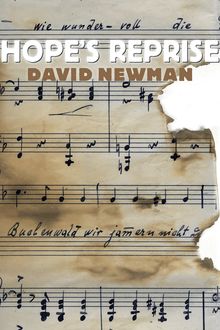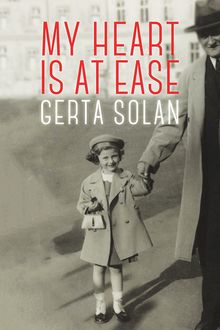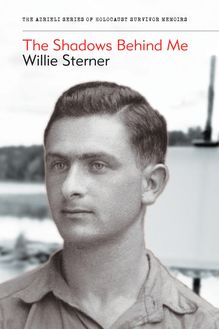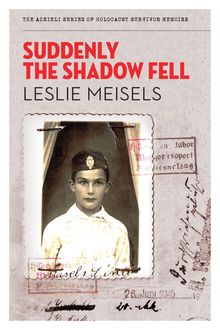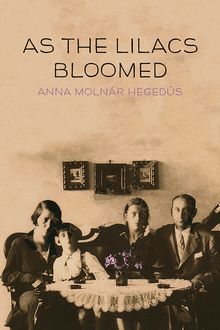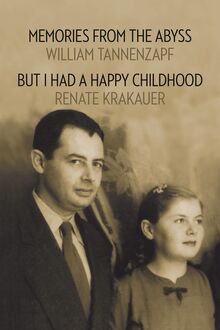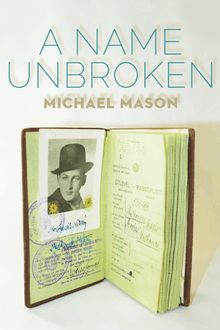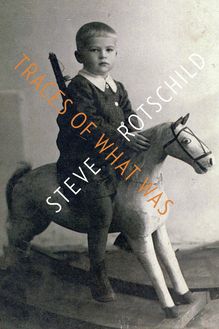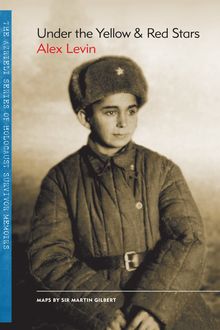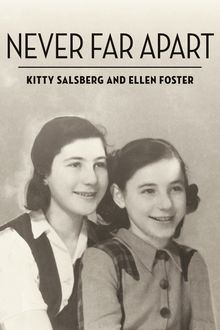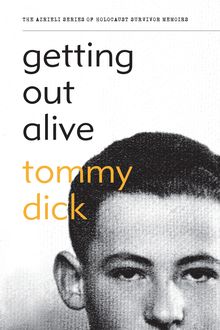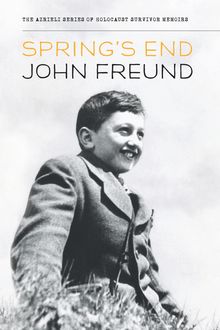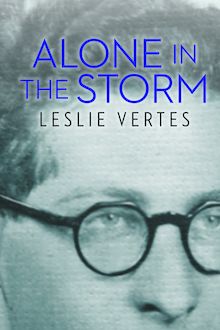Getting Out Alive , livre ebook
60
pages
English
Ebooks
2007
Vous pourrez modifier la taille du texte de cet ouvrage
Obtenez un accès à la bibliothèque pour le consulter en ligne En savoir plus
Découvre YouScribe en t'inscrivant gratuitement
Découvre YouScribe en t'inscrivant gratuitement
60
pages
English
Ebooks
2007
Vous pourrez modifier la taille du texte de cet ouvrage
Obtenez un accès à la bibliothèque pour le consulter en ligne En savoir plus
Publié par
Date de parution
01 septembre 2007
Nombre de lectures
5
EAN13
9781897470923
Langue
English
Publié par
Date de parution
01 septembre 2007
Nombre de lectures
5
EAN13
9781897470923
Langue
English
Getting Out Alive
Tommy Dick
The Azrieli Series of Holocaust Survivor Memoirs
Naomi Azrieli, Publisher
Jody Spiegel, Program Director
Arielle Berger, Managing Editor
Farla Klaiman, Editor
Elizabeth Lasserre, Senior Editor, French-Language Editions
Aurélien Bonin, Educational Outreach and Events Coordinator, Francophone Canada
Catherine Person, Educational Outreach and Events Coordinator, Quebec region
Elin Beaumont, Senior Educational Outreach and Events Coordinator
Tim MacKay, Digital Platform Manager
Susan Roitman, Executive Assistant and Office Manager (Toronto)
Mary Mellas, Executive Assistant and Human Resources (Montreal)
Mark Goldstein, Art Director
François Blanc, Cartographer
Bruno Paradis, Layout, French-language editions
Contents
The Azrieli Series of Holocaust Survivor Memoirs
Series Preface: In their own words...
About the Glossary
Introduction
Map
Dedication
Part I: The German Occupation
Part II: Emigration
Epilogue
Glossary
Photographs
Copyright
About the Azrieli Foundation
Also Available
Series Preface: In their own words...
In telling these stories, the writers have liberated themselves. For so many years we did not speak about it, even when we became free people living in a free society. Now, when at last we are writing about what happened to us in this dark period of history, knowing that our stories will be read and live on, it is possible for us to feel truly free. These unique historical documents put a face on what was lost, and allow readers to grasp the enormity of what happened to six million Jews – one story at a time.
David J. Azrieli, C.M., C.Q., M.Arch
Holocaust survivor and founder, The Azrieli Foundation
Since the end of World War II , over 30,000 Jewish Holocaust survivors have immigrated to Canada. Who they are, where they came from, what they experienced and how they built new lives for themselves and their families are important parts of our Canadian heritage. The Azrieli Foundation’s Holocaust Survivor Memoirs Program was established to preserve and share the memoirs written by those who survived the twentieth-century Nazi genocide of the Jews of Europe and later made their way to Canada. The program is guided by the conviction that each survivor of the Holocaust has a remarkable story to tell, and that such stories play an important role in education about tolerance and diversity.
Millions of individual stories are lost to us forever. By preserving the stories written by survivors and making them widely available to a broad audience, the Azrieli Foundation’s Holocaust Survivor Memoirs Program seeks to sustain the memory of all those who perished at the hands of hatred, abetted by indifference and apathy. The personal accounts of those who survived against all odds are as different as the people who wrote them, but all demonstrate the courage, strength, wit and luck that it took to prevail and survive in such terrible adversity. The memoirs are also moving tributes to people – strangers and friends – who risked their lives to help others, and who, through acts of kindness and decency in the darkest of moments, frequently helped the persecuted maintain faith in humanity and courage to endure. These accounts offer inspiration to all, as does the survivors’ desire to share their experiences so that new generations can learn from them.
The Holocaust Survivor Memoirs Program collects, archives and publishes these distinctive records and the print editions are available free of charge to libraries, educational institutions and Holocaust-education programs across Canada. They are also available for sale to the general public at bookstores. All revenues to the Azrieli Foundation from the sales of the Azrieli Series of Holocaust Survivor Memoirs go toward the publishing and educational work of the memoirs program.
•
The Azrieli Foundation would like to express appreciation to the following people for their invaluable efforts in producing this book: Todd Biderman, Helen Binik, Tali Boritz, Mark Celinscak, Mark Clamen, Jordana de Bloeme, Andrea Geddes Poole, Tamarah Feder, Valerie Hébert, Joe Hodes, Tomaz Jardim, Irena Kohn, Tatjana Lichtenstein, Carson Phillips, Randall Schnoor, Tatyana Shestakov, and Mia Spiro.
About the Glossary
The following memoir contains a number of terms, concepts and historical references that may be unfamiliar to the reader. For information on major organizations; significant historical events and people; geographical locations; religious and cultural terms; and foreign-language words and expressions that will help give context and background to the events described in the text, please see the Glossary .
Introduction
Tommy Dick’s memoir of a daring adolescent concealing his identity to dodge detection and narrowly escaping death makes for gripping reading. Fast-paced and suspenseful, his account illuminates a less discussed side of the Holocaust: the persecution of “non-Jewish” Jews – that is, individuals who were branded as Jews by authorities despite the fact they did not consider themselves Jewish.
Born in the period between the two world wars, Tommy Dick was raised in Budapest in an affluent family of Jewish converts to Christianity. Though fully Hungarian in language and culture, and surrounded by privilege, Tommy Dick was always made to feel something of an outsider in his native land. The circles in which he travelled shared this alienation. Never circumcised and a Protestant, he was always aware of his Jewish lineage. Even if he lacked familiarity with Jewish culture, the social exclusion he felt from non-Jewish society made sure of this. This awareness was reinforced by the experience of growing up among people like him – individuals who were Jews in an ethnic sense yet who were formally Christian and/or simply indifferent to Jewish religion and culture.
From 1867, when Hungary gained autonomy within Austria-Hungary and its Jews were granted equality and citizenship, Hungarian Jewry enthusiastically identified with Magyar (Hungarian) culture and the cause of Hungarian nationalism in this multi-ethnic empire. Magyar became their beloved mother tongue, typically replacing German or Yiddish, the language of most Eastern European Jews, helping them develop an identity distinct from Jews in neighbouring lands. The collective Magyarization of the Jews was welcomed and encouraged by the gentry that formed the Hungarian political elite. Barred for generations from most guilds and professions, European Jews had over the course of centuries gained expertise in money trades, commerce and, eventually, finance. The gentry, therefore, recognized the value of Jews in helping to build a modern, capitalist economy through the support of industry and the opening of commercial and financial institutions. It also appreciated the Jews as disseminators of Magyar language and culture in the vast Hungarian kingdom. This was especially true in its borderlands, where ethnic Hungarians were a minority among Czechs, Slovaks, Romanians, Ukrainians and others. The emergence of a prosperous middle class of Jewish professionals and businessmen further encouraged acculturation and identification with the dominant majority. Jews (or individuals of Jewish descent) gave their all to Hungary: apart from business and finance, they were extremely active in music, the arts and literature, journalism, medicine and sports.
Despite these varied accomplishments (or perhaps precisely because of them) social discrimination remained. The “polite” exclusion of Jews – even the Jewish spouses of nobility – from elite social clubs and traditional domains of aristocratic privilege in government and the military was common. As elsewhere in Europe, the late nineteenth century saw the emergence of antisemitic movements eager to remove Jews and perceived Jewish influence from society. To facilitate social integration and careers, many replaced their “Jewish-sounding” (often German) surnames with Hungarian ones. Schneider, for example, became Szabó and Cohen became Kovács. Others took the more definitive step of converting to Christianity to escape the disability imposed by Jewishness, which was still officially considered a religious rather than racial category in Hungary prior to the 1930s. Tommy’s grandparents and parents started, in his words, as “non-practicing Jews, and after their conversion they became nonpracticing Protestants.” As Tommy describes it, his family’s conversion to Christianity was largely perfunctory and they were not embarrassed by their Jewish origins. He aptly summarizes the situation by saying, “Although the family had not practiced the rituals of any religion, socially and culturally we remained Jewish, mostly as a reaction to the country’s segregated antisemitic social structure.” Thus, his family was a part of a specific subculture, Hungary’s “nonJewish Jews” who frequently socialized amongst themselves and thus reinforced certain cultural norms.
With the dissolution of the Austro-Hungarian Empire as a result of World War I , Hungary found itself a fully independent state but deeply aggrieved. The Treaty of Trianon caused it to lose much territory to its neighbours (some of whom were new countries), including most of its non-ethnic Hungarian population. This made it for the first time an ethnically homogenous nation state. Nearly half of its pre-World War I Jewish population now found itself outside its borders, leaving about 473,000 Jews in the truncated Hungary in 1920. The number of Jews was in further decline due to conversions, a relatively high rate of intermarriage between Jews and Christians, and a low birthrate. These trends reflected Jews’ prosperity and significant degree of acculturation an
